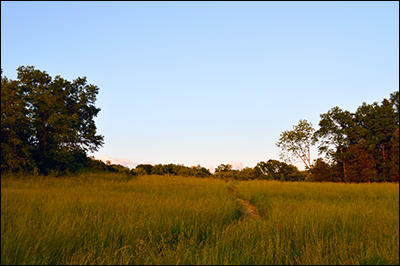

Since 1961, Green Acres, Blue Acres, and other New Jersey open space programs have helped preserve more than 1.2 million acres of land in our state. The 113 acres of land at Primrose Farm in Harding Township (shown here) is one of many properties in the Great Swamp Watershed region benefitting from 53 years of open space funding. Credit: GSWA.
On August 4, 2014, the New Jersey General Assembly passed a bill to put a state constitutional amendment concerning open space preservation on the ballot for the upcoming general election. The state Senate approved a similar measure in June.
This means that New Jersey voters will finally have the chance this November to approve a permanent, stable source of funding for open space initiatives. The money—an amount totaling about $70 million per year—will come out of corporate business tax revenues. That represents about 4% of corporate tax revenues the state is projected to collect between July 1, 2015, and June 30, 2019.
Under the terms of the new amendment, the share of revenue taken for open space would increase to 6% (or about $117 million annually) beginning in July 2019.


GSWA supports NJ Keep It Green’s Vote YES on #2 campaign. A “yes” vote on the November 4 ballot is a vote in favor of protecting and preserving our wild and scenic places. Check out the campaign at NJKeppItGreen.org.
Should the new amendment be adopted, associated costs will be offset by a reduction of allocations for programs that, according to officials, no longer require the same levels of funding they once did. This would include current programs focused on the reduction of diesel pollution and brownfield remediation.
Allocations for several specific programs, including Green Acres for open space preservation, Blue Acres for preservation of flood-prone areas, farmland preservation, historic site preservation, contaminated site cleanup, and removal and remediation of underground storage tanks will continue as they have in the past.
Importantly, the new amendment would prohibit the state from using designated open space funds to pay principal or interest on general-obligation bonds.
This is the first time New Jersey has been given the chance to decide on a permanent funding solution for open space. To date, more than 1.2 million acres of land in the state have been preserved. And since 1961, voters have passed 13 out of 13 ballot questions funding preservation through temporary bond measures. With the creation of the Garden State Preservation Trust in 1998, about $200 million have been devoted to these programs each year. The citizenry has clearly demonstrated its support for open space initiatives for more than 50 years, so it is encouraging to see that policymakers have acted to let voters decide on a way to provide more consistent and stable funds for these activities.
Relying on the reallocation of tax revenues, instead of a tax hike, the provisions contained within this new amendment are both fiscally responsible and good public policy.
We know that open space preservation does not deprive municipalities of ratable growth. We also know that the municipal costs—especially education costs—frequently exceed the tax revenue generated by new development projects. Ultimately, making a more durable and enduring investment in open space preservation makes good economic and environmental sense.
Great Swamp Watershed Association fully supports the ballot measure and we encourage all to vote in favor on November 4.